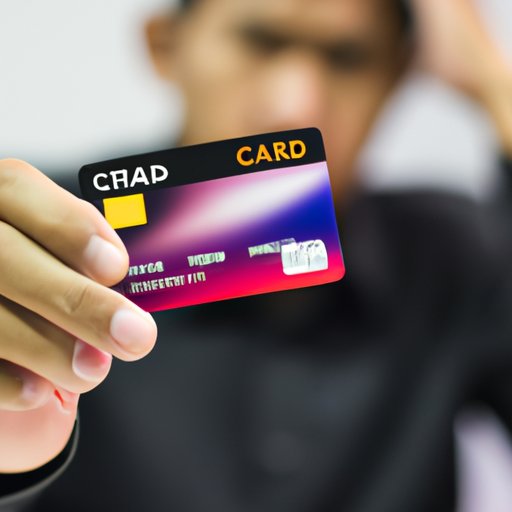
Can You Go to Jail for Disputing Charges?
Disputing charges is a common occurrence for anyone that owns a credit card. There might be instances where you did not receive the product or service promised, or it was not as described. Sometimes, unauthorized charges may also appear on your credit card. In such cases, you need to dispute the charges to resolve the matter. However, disputing charges can also lead to serious legal consequences, including fines and even potential jail time. This article aims to inform readers about the potential legal consequences of disputing charges and how to avoid getting into legal trouble while disputing charges. This article is intended for anyone who owns a credit card and is contemplating disputing charges.
The Consequences of Disputing Charges: What Can Happen if You’re Wrong
When you dispute a credit card charge, you are stating that the charge is invalid or fraudulent. However, if you dispute charges without proper evidence or knowingly dispute charges that are not actually invalid, then you may face serious legal consequences. One of the potential consequences is the charge may be escalated to a criminal charge that could result in imprisonment.
Disputing charges without proper evidence can also lead to charges of fraud. Fraud charges can be filed if it is found that the disputing party provided false information with the intent to defraud the vendor or the credit card company. This is a serious criminal offense that could lead to fines or imprisonment.
The Dos and Don’ts of Disputing Charges: How to Avoid Legal Trouble
To avoid legal consequences while disputing charges, here are some practical tips:
- Always try to work out issues with the vendor before disputing charges with your bank. This will help you avoid any legal issues that may arise.
- Ensure that you collect enough evidence to prove your claim. This includes invoices, product descriptions, correspondence with the vendor, etc.
- Do not knowingly dispute a valid charge. This is considered fraud and can lead to serious legal consequences.
- Be clear on what kind of charge you are disputing and provide clear grounds for disputing that charge.
Can You Really Go to Jail for Disputing a Credit Card Charge? Debunking the Myths
There have been several misconceptions that disputing a credit card charge can lead to jail time, but this is not true in most cases. To go to jail, the dispute must be invalid, and there must be evidence that the disputing party knowingly filed an invalid dispute. This is considered fraud and can lead to jail time.
When Disputing Charges Goes Wrong: One Man’s Story of Legal Woes
One real-life example of how disputing charges wrongly could lead to legal trouble is the case of John Doe. John disputed a charge for a product that was delivered to him but did not meet his expectations. Unfortunately, John did not have enough evidence to support his claim, and the vendor provided evidence that the product was delivered, fulfilling the order. Instead of seeking a refund or resolution with the vendor, John chose to dispute the charge with his bank.
The bank investigated the claim and found insufficient evidence to support John’s claim, leading John to be charged with fraud. John’s case went to court, and he was found guilty of fraudulently disputing the charge. The charges were escalated to criminal charges which could have resulted in imprisonment. In the end, John was fined instead of facing imprisonment.
Expert Advice: How to Safely Dispute Credit Card Charges Without Risking Legal Action
To safely dispute credit card charges, it is recommended that you keep detailed records of your orders, communications with the vendor, invoices, and receipts. Before disputing with your bank, try to resolve the matter with the vendor to avoid possible legal consequences. If you do decide to dispute a charge, ensure that you have sufficient evidence to support your claim. Finally, do not knowingly dispute valid charges as this can lead to criminal charges.
Conclusion
Disputing charges can be stressful, especially when you feel you have been wronged. However, it is essential to keep in mind the legal consequences that disputing charges may lead to. Disputing valid charges or disputing without proper evidence can lead to fines and even imprisonment. To avoid getting into legal trouble, it is important to keep detailed records of your purchases, try to resolve matters with the vendor directly, and only dispute charges that have valid grounds.




